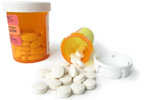Men's Health
Male Enhancement, How to Get an Erection, Increase Sperm Volume, Penis Enlargement, Premature Ejaculation, ...All Men's Health Men's Health
Women's Health
Breast Enhancement, Female Libido Enhancement, Female Sexual Arousal, ...All Women's Health Women's Health
Acne & Skin Care
Acne Treatment, Boils Treatment, Rosacea Treatment, Skin Pigmentation, Stretch Marks, Varicose Veins, ...All Acne & Skin Care Acne & Skin Care
Digestive & Urinary Systems
Constipation, Diarrhea, Hemorrhoid, Irritable Bowel Syndrome, Sensitive Digestion, ...All Digestive & Urinary Systems Digestive & Urinary Systems
Weight Loss
Blocking Carbs and Fat, Body Detoxification, Boost Metabolism, Fat Burning, Increase Energy Levels, Obesity Treatment, Suppressing AppetiteSports and Fitness
Improve Sports Performance, Increase Endurance, Increase Strength, Muscle Building Supplements, Muscle Recovery, Weight Gainers, Workout IntensityMental Health & Neurology
Anxiety, Bad Mood, Chronic Fatigue Syndrome, Depression, Insomnia, Memory Loss, Neuropathy, Obsessive-Compulsive Disorder, Stress, ...All Mental Health & Neurology Mental Health & Neurology
Beauty & Well-being
Bad Breath, Brittle Nails, Eyelash Growth, Gray Hair, Hair Removal, Nail Fungus, Teeth Whitening, Tattoo RemovalAdd to Bookmarks
Low Testosterone During Andropause: How to Boost Testosterone Levels Naturally?
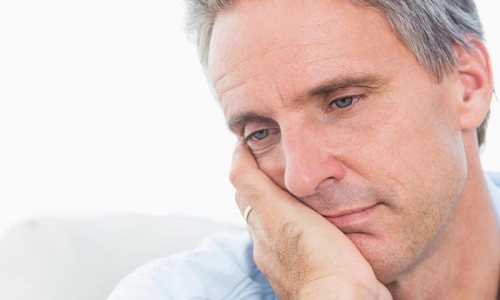 At the age of about 40 many men begin to suffer from different changes such as hair loss, bone loss, problems with memory or calculation, insomnia and some other sleeping disorders.
At the age of about 40 many men begin to suffer from different changes such as hair loss, bone loss, problems with memory or calculation, insomnia and some other sleeping disorders.As a rule their maturity and youthful exuberance start to diminish when they reach this age. Men can also feel irritable, exhausted and less motivated. In some cases, there are other symptoms, too. Aches and pains, erectile dysfunction, bone loss, decreased muscle mass, sweating, flushing and depression - all of these appear at midlife.
Understanding Andropause
The major part of men who are over 40 now suffers from one of these symptoms or more. The degrees of the symptoms may be different. And their influence on the self-esteem and self-assurance of a man over thirty is poisonous. It can be compared with the female menopause. But as for this male phenomenon it is called andropause.Andropause is when the hormonal systems of a man stops functioning as it did earlier, which may lead to problems in relationships, sex, and overall health. This article will help you understand the cause and effects of andropause.
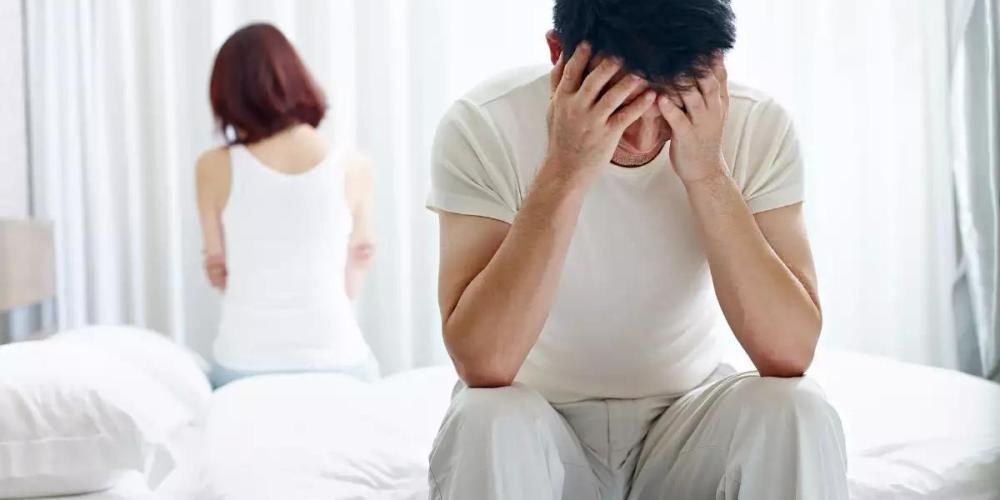
According to National Health Services UK:
Male andropause refers to the aging process in men, which is characterized by a variety of symptoms that develop with age. Although the symptoms of andropause are similar to those of the female equivalent, men experience andropause differently than women. In some men, symptoms may not appear until after the age of 40, while in other men, symptoms can appear much earlier in life. The symptoms of andropause vary greatly from man to man, and their impact on a man's self-esteem and self-assurance is often devastating.
Sexual Health and Testosterone: The Connection
Testosterone and Libido
Testosterone plays a vital role in regulating a man's libido or sexual desire. As testosterone levels decline with age, many men experience a noticeable reduction in their sexual interest and drive. This decline can lead to frustration, relationship strain, and emotional distress. Low testosterone often results in diminished sexual arousal, making it harder to feel interested in or enjoy intimate activities. Addressing testosterone imbalances can help improve libido and sexual satisfaction.Erectile Function and Testosterone
Testosterone is also essential for maintaining erectile function. While testosterone alone is not responsible for achieving an erection, it plays a key role in initiating and maintaining the physical processes needed for an erection. Low testosterone levels can lead to erectile dysfunction (ED), where men have trouble getting or keeping an erection. When testosterone levels are restored or managed, many men notice improvements in their erectile function, although other factors such as blood flow and psychological health also play a role.Mood and Emotional Health
Testosterone levels influence mood and emotional well-being. Men with low testosterone often report feeling depressed, anxious, or irritable. These mood changes can contribute to sexual dysfunction, as a negative emotional state can reduce interest in sex. By addressing testosterone imbalances, men may experience an improvement in mood, which can, in turn, help restore their sexual drive and performance.
According to Mayo clinic:
By addressing testosterone levels, men can improve both their sexual health and their emotional well-being, leading to a healthier, more fulfilling lifestyle.
What is Andropause?
Male andropause is the name given to the onset of symptoms usually associated with aging in men. It usually occurs after the age of 40 but can also begin in late thirties or early fifties. The most common symptoms are loss of libido, erectile dysfunction, osteoporosis, memory problems, and other changes similar to those of the female menopause. In severe cases, symptoms may include depression, anxiety, baldness, breast tenderness, change in voice, dizziness, dry skin, fatigue, headache, insomnia, hot flashes, loss of muscle mass, low energy, mood swings, night sweats, poor concentration, weight gain and/or weight loss.These symptoms are often caused by the imbalance in the hypothalamic-pituitary-gonadal axis. This is the primary cause of male menopause. The symptoms usually do not begin suddenly. There may be symptoms of andropause that go unnoticed for years before being treated.
Causes of Andropause
A number of issues can affect and increase symptoms of andropause. These are: genetic factors, hormonal changes, damaging drugs, alcohol consumption, drugs, smoking, stress, blood pressure, thyroid problems, endometriosis, asthma, high blood pressure, diabetes, and cardiovascular diseases. It is important to note that the causes of andropause are not always the same, and sometimes they may not occur at all.In general, andropause happens because the level of the male hormone, testosterone, is declining gradually from the age of 30, growing at the astounding rate of approximately 10% per decade. The low level of testosterone during andropause leads to reduced sperm production, lower level of sex drive, body and pubic hair loss, weaker muscles and bones. The situation gets worse every decade.
Andropause Complications
This crisis in the middle of life influences men and their quality of life that decreases as the body gets older. Besides, it can bring to numerous complications. But there is a way to decrease these unpleasant signs or get rid of them. This is done quite easily. You should just take care of your diet, do regular sports activities, control your stress levels and give up or reduce smoking and alcohol drinking.The main complications of the male andropause are: reduced level of testosterone, increased level of cortisol, symptoms of the aging process and some symptoms of the stress process. The symptoms of the andropause are caused by the changes in the body rather than by the age. They are not always reversible processes.
Some older men are able to continue their lifestyle, although some men have difficulties. These difficulties are caused by the loss of sexual interest or erectile dysfunction, problems maintaining sexual desire or performance, emotional disturbances, decreased energy levels, and physical deterioration. Sexual counseling and support groups can help older men become involved in sexual activity again.
Why Testosterone Levels Drop
Natural Aging Process
Testosterone levels peak in early adulthood and begin to decline naturally with age. After the age of 30, testosterone levels may decrease by about 1% each year. This slow reduction adds up over time, often leading to symptoms of low testosterone in middle-aged and older men. The decline is part of the body's normal aging process and is influenced by changes in hormone regulation mechanisms in the brain and testes.Reduced Testicular Function
One of the main reasons testosterone drops during andropause is reduced function of the Leydig cells in the testes. These cells are responsible for producing testosterone. As men age, the number and activity of these cells decrease. This directly limits the body's ability to produce and maintain healthy testosterone levels.Hormonal Feedback Disruption
The hypothalamus and pituitary gland play a key role in signaling the testes to produce testosterone. With age, this signaling process becomes less efficient. The release of luteinizing hormone (LH), which stimulates testosterone production, may decline or become irregular. This weakened feedback loop causes further reductions in testosterone levels.Increased Sex Hormone-Binding Globulin (SHBG)
As men age, levels of sex hormone-binding globulin (SHBG) increase. SHBG binds to testosterone in the blood, making it unavailable for the body to use. Higher SHBG levels mean that even if total testosterone is within normal range, the amount of free, usable testosterone may be too low to support normal function.Lifestyle and Health Factors
Several lifestyle and health factors can speed up testosterone decline. These include poor diet, lack of physical activity, chronic stress, alcohol consumption, smoking, and sleep deprivation. Certain health conditions like obesity, type 2 diabetes, and metabolic syndrome can also impair testosterone production and regulation.Health Risks of Untreated Low Testosterone During Andropause
Loss of Muscle Mass and Strength
Low testosterone levels reduce the body's ability to maintain muscle tissue. Men may notice a gradual loss of muscle mass and physical strength, even with regular exercise. This decline affects mobility, endurance, and overall physical performance. It also raises the risk of falls and injuries, especially in older adults.Increased Body Fat
A drop in testosterone can lead to an increase in body fat, especially around the abdomen. Fat tissue can further suppress testosterone production, creating a cycle that worsens hormonal imbalance. Increased fat also raises the risk of other health issues, including high blood pressure and heart disease.Decreased Bone Density
Testosterone plays a key role in maintaining strong bones. Low levels can cause a reduction in bone mineral density, which increases the risk of osteoporosis and fractures. This is a serious concern for aging men who may not realize that weakened bones are linked to low testosterone.Low Libido and Erectile Dysfunction
Testosterone directly affects sexual desire and performance. Men with low levels often report reduced libido and may have trouble achieving or maintaining erections. These issues can lead to reduced self-esteem, stress, and relationship problems.Fatigue and Low Energy
Chronic fatigue is a common symptom of low testosterone. Men may feel tired even after adequate sleep. Low energy can affect daily activities, work performance, and motivation to stay physically active.Mood Changes and Depression
Testosterone influences mood regulation. Low levels may lead to irritability, anxiety, or depressive symptoms. Some men experience reduced mental clarity, memory problems, and difficulty concentrating.Cardiovascular Health Concerns
Studies suggest a connection between low testosterone and increased risk of heart disease. While more research is needed, maintaining balanced hormone levels may help support heart health.Untreated low testosterone can have a wide-ranging impact on physical, emotional, and sexual health. Early recognition and proper management are essential.
How to Boost Testosterone Production During Andropause?
Men with andropause symptoms often seek medical advice because they have concerns about their health and well-being. Many are also concerned about whether or not they will be able to function in their current state. For many, the answer lies in increasing their testosterone levels.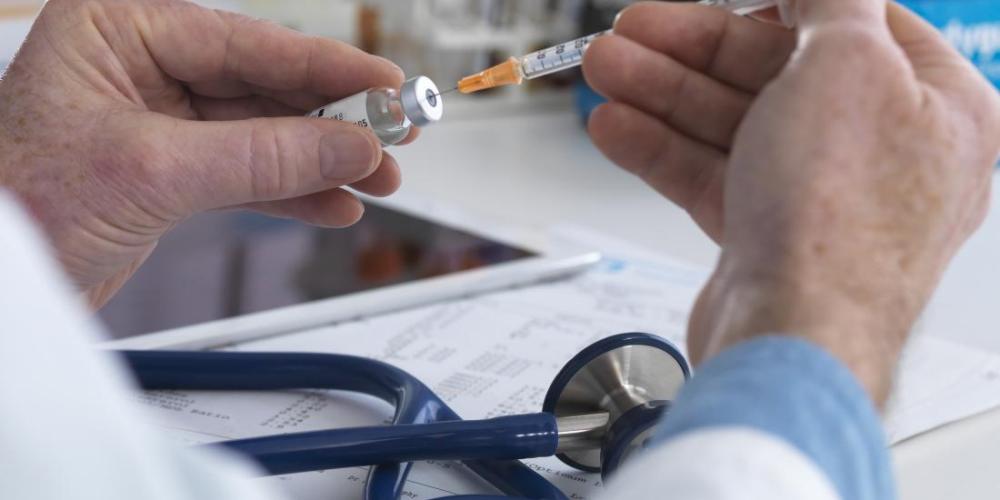
According to MedicalNewsToday.com:
The most common way to treat andropause symptoms is with testosterone. Injectable testosterone can be used to increase sex drive, improve erectile function, and increase bone density. Long-term testosterone therapy can increase sex drive and improve erectile function, but it may also increase the risk of prostate cancer and blood clots. The best approach to treating andropause symptoms will often depend on the individual.
Testosterone Replacement in Men with Andropause
Testosterone therapy is a popular treatment for men suffering from andropause. The main effects are to increase levels of testosterone in men, improve the libido and the sexual performance, as well as to improve the mental and physical performance.Testosterone replacement therapy is a treatment for men who are suffering from andropause. This is a condition that is linked to the inability of the body to produce enough testosterone. In case of andropause symptoms, it means a decrease of sexual desire, libido, and sperm production. The men having this condition need to use testosterone replacement therapy.
Testosterone replacement therapy, as its name suggests, is the replacement of testosterone levels in the body. In most cases, it is administered as an injection, or as a pill or gel.
However, only in case of a severe andropause a hormone replacement therapy can be the solution. Some men experience severe side effects of hormonal therapies. These side effects include:
- increased blood pressure,
- mood swings,
- anxiety,
- sleep disorders,
- breast swelling, and
- hair loss.
Therefore, there often is a need for an alternative treatment that do not cause these side effects. One of these options is natural testosterone boosters.
Testosterone Boosters
In spite of the fact that mid-life crisis has no treatment there are still some testosterone boosters that can be used to restore penis size and get rid of the consequences of andropause. A number of people may think that these boosters are total money waste. But, there're individuals who honestly think that an testosterone booster can produce a huge difference in their day-to-day lives.Why is it very important? In many cases sex can either restore or destroy a relationship. For a great number of couples, sex is like a magic stick that can make wonders. The reason is in emotional aspect of sexual relationships. Men understand that women expect them to be sexual, strong and attractive. They don't want their partners to suffer from sexual problems and don't want to spoil their sexual life with them.
The most important difference between testosterone boosters and testosterone replacement is that testosterone boosters do not contain testosterone itself. Instead, it helps male body produce testosterone on its own. Testosterone replacement therapy is available as injections, implants, or transdermal patches that include certain dosage of this hormone. Testosterone boosters may help produce some amounts of testosterone in the body, but only hormonal therapy is used to significantly increase testosterone levels.
Natural Lifestyle Changes That Help Boost Testosterone
- Exercise is one of the most effective ways to support testosterone levels. Strength training and resistance exercises help stimulate natural hormone production. Short, intense workouts are more beneficial than long endurance sessions, which may lower testosterone if overdone.
- Sleep plays a key role in hormone regulation. Most testosterone is produced during deep sleep. Poor sleep or irregular sleep patterns can lower testosterone levels. Adults should aim for 7-9 hours of quality sleep each night to support natural hormone balance.
- Chronic stress raises cortisol levels, which can interfere with testosterone production. Managing stress through breathing exercises, meditation, time outdoors, or hobbies can help reduce cortisol and support healthy testosterone levels.
- A diet that includes lean protein, healthy fats, and vegetables supports hormone health. Overeating or undereating can disrupt hormone balance. Stable blood sugar levels also contribute to better testosterone regulation.
- Limiting alcohol, avoiding tobacco, and reducing exposure to environmental toxins help protect testosterone production. These habits support overall hormonal and physical health.
Consistent, healthy lifestyle changes offer a safe and natural way to support testosterone levels during andropause.
Foods That Support Healthy Testosterone Levels
- Protein helps maintain muscle mass and supports hormone production. Including lean meats, poultry, eggs, and plant-based proteins in your meals can promote better testosterone levels. Protein also helps control body fat, which is important for hormonal balance.
- Healthy fats are essential for testosterone production. Sources such as olive oil, avocados, nuts, and seeds provide good fats that support hormone health. Low-fat diets may reduce testosterone, so moderate intake of these fats is important.
- Vegetables, especially leafy greens like spinach and kale, contain plant compounds that support hormonal function. Cruciferous vegetables like broccoli and cauliflower may help reduce estrogen levels, which can indirectly support testosterone balance.
- Whole grains provide steady energy and support digestion, which contributes to better overall health. A diet rich in fiber also helps manage weight and blood sugar levels, both of which influence testosterone production.
- Drinking enough water and maintaining a diet rich in vitamins and minerals helps the body function properly. Nutrient-rich foods help the body produce and regulate hormones naturally.
Eating a balanced diet with these food groups can support testosterone levels and improve overall well-being during andropause.
The Role of Weight Management in Hormonal Balance
- Excess body fat, especially abdominal fat, has been linked to lower testosterone levels. Fat cells produce estrogen, which can further suppress testosterone production. As men gain weight, particularly in their midsection, testosterone levels often decrease, leading to a cycle of worsening hormonal imbalance.
- Losing excess weight, especially belly fat, can help restore testosterone levels. When body fat decreases, estrogen production declines, allowing testosterone to remain more active. Weight loss also improves insulin sensitivity, which is important for maintaining healthy testosterone levels. A balanced diet combined with regular exercise can help men achieve and maintain a healthy weight.
- Maintaining a healthy weight supports overall hormonal balance and promotes better energy levels, mood, and sexual health. It also reduces the risk of other health conditions, such as heart disease, type 2 diabetes, and high blood pressure, which can negatively affect testosterone levels.
- Regular physical activity, particularly strength training and cardiovascular exercise, helps burn fat and build muscle. Exercise not only supports weight loss but also directly stimulates testosterone production, further supporting hormonal balance.
Managing weight is a key factor in supporting healthy testosterone levels during andropause.
Testosterone Boosters for Men with Andropause
Among the most common treatments for male andropause are testosterone boosters. These are medications that are intended to increase the level of the male sex hormone testosterone in the body. They are often used in men who do not produce enough of this hormone due to age, and who show symptoms of andropause.Testosterone boosters are also used to treat low testosterone in men who have been diagnosed with a low testosterone condition such as hypogonadism or testicular cancer.
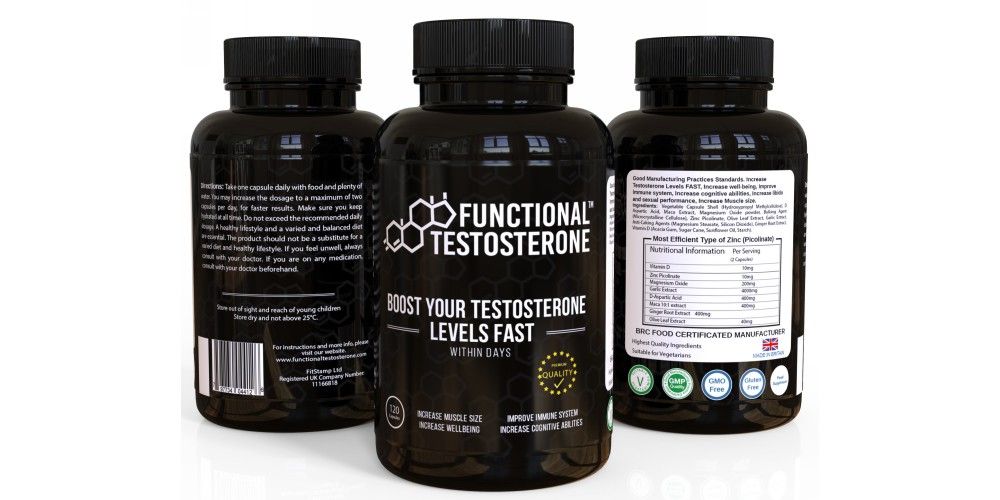
According to HealthLine.com:
Although there are no solid studies that prove testosterone boosters help boost the sex hormone levels, there are some data that suggest that they may help increase the total level of testosterone in the body. When testosterone boosters are used to treat symptoms in men with andropause, they may actually help increase levels of testosterone in the body, which can help the individual feel better and function better.
You should also know that these medications are only effective when used in conjunction with exercise, healthy eating habits, and sex. Testosterone boosters are not meant to be used alone. That means that you should be careful to talk to your doctor or pharmacist about the amount of testosterone booster you should be taking.
How Testosterone Boosters Work to Treat Symptoms of Andropause
Testosterone boosters work like a magic at time. First of all, they help to diminish symptoms of andropause. Secondly, the results are noticed in details. The quality of erection becomes better and its durability rises. Thirdly, the person gets healthier. Actually, he encounters a much better blood flow in his system. Thus, fourth, the person additionally goes through a restored staying power that helps him perform in bed a lot better. Fifth, judging from the benefits above, we can say that testosterone boosters can save relationships.Choose Your Testosterone Booster!
Nevertheless, numerous guys have some issues about choosing testosterone boosters. To them, it is just like a huge slap to their manhood. However, there are more and more men who now begin to understand that there is nothing wrong in this action. As a matter of fact, there are dozens of websites that help people learn more about testosterone boosters. You can use the link below to find out some great ways of increasing the level of your testosterone.So, that's why the number of men who trust natural testosterone boosters is growing from year to year.
Featured Natural Testosterone Boosters
Natural testosterone boosters can be a safe and effective way to support testosterone levels without resorting to prescription medications. These boosters typically include herbs, vitamins, and minerals that are known to enhance the body's ability to produce testosterone naturally.Learn How to Boost Testosterone Levels During Andropause
Related Articles
Erectile Dysfunction Treatment Options
If you need to cope with the erectile problem or even impotence, erectile dysfunction treatments can really help you. They will raise your sexual experiences and encourage your confidence. Erectile dysfunction exercises can help you change penis size and control erections. However, they will fail if you try to get an erection with these exercises. But what can help you in this case is another method of erectile dysfunction treatment - erectile dysfunction creams. Their formula is designed to penetrate quickly and deeply into penile tissue, giving apparent results in 60 seconds.
How to Choose Safe Volume Pills
Want to make your semen amount greater and have long lasting ejaculations? The thing you are trying to find is volume pills. They help both to increase your semen amount and to make your ejaculations longer. Safe volume pills are very effective in increasing sperm load without any side effects that can be expected if the product is chemically modified. Read this guideline that contain certain points that you have to be clear on and the important things that you have to look for if you want to choose safe volume pills.
How to Cure Premature Ejaculation? Premature Ejaculation Treatment Methods
Premature ejaculation definition is very vague. It can mean ejaculating before intercourse, and also at the very beginning of intercourse. And sometimes premature ejaculation is defined even as finishing earlier than your partner. Based on the recent surveys people can avoid ejaculation problem in a minimum of 95% situations. The best option is to incorporate all three major premature ejaculation treatment methods: herbal premature ejaculation pills, start-and-stop technique, or premature ejaculation exercises.
Last Updated: 2025-11-14



